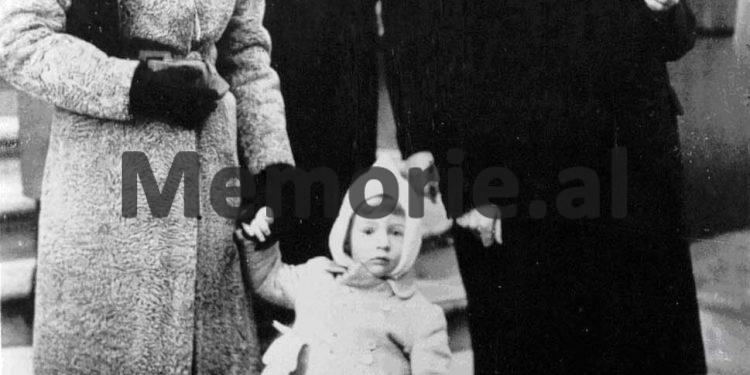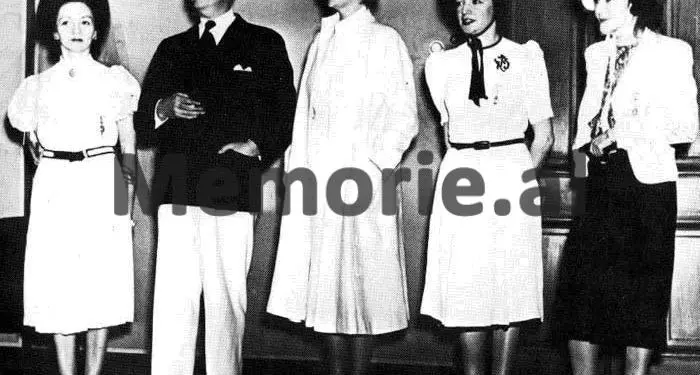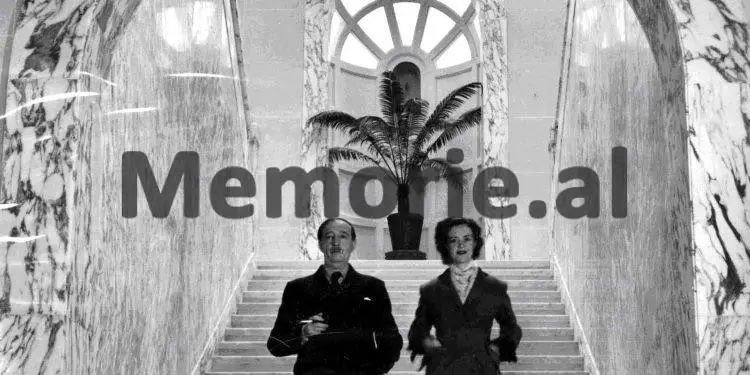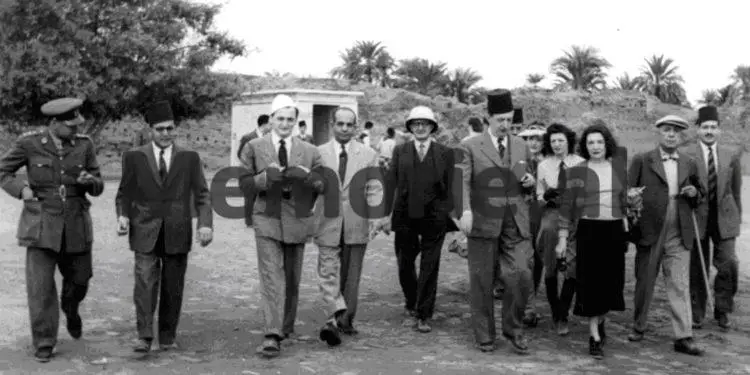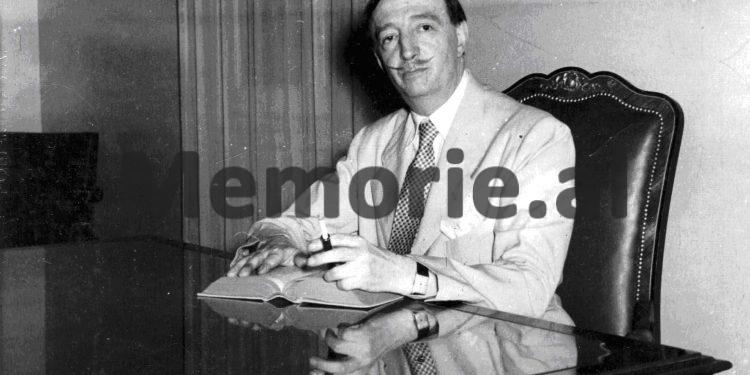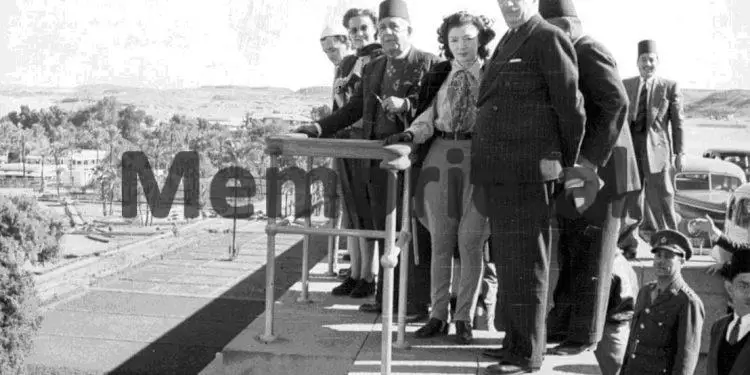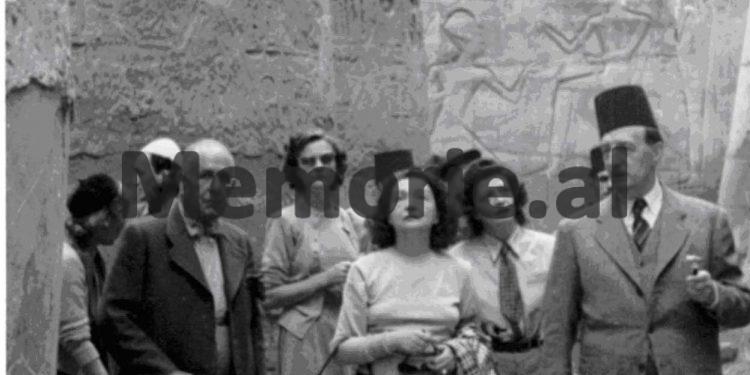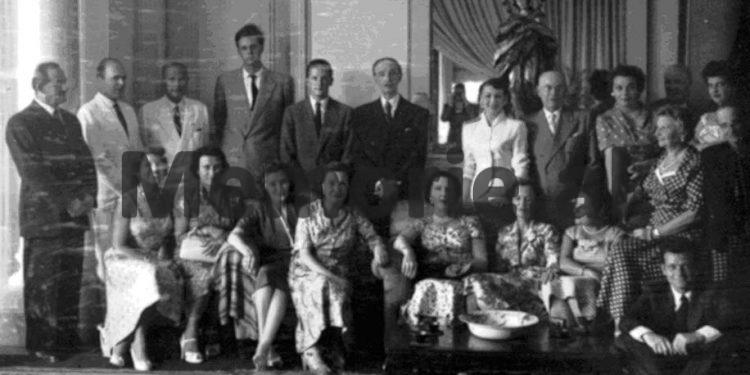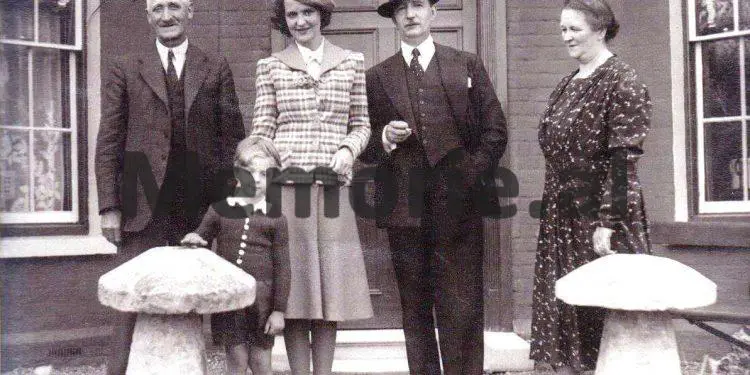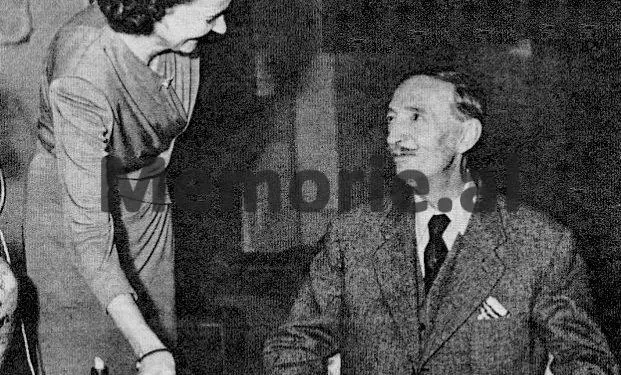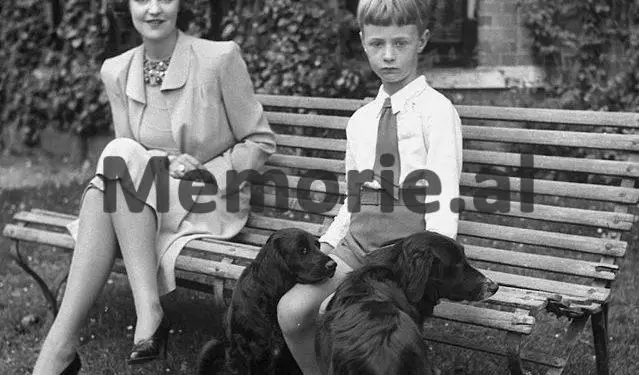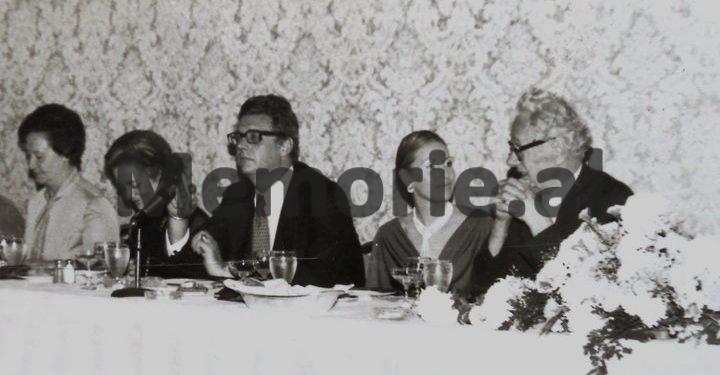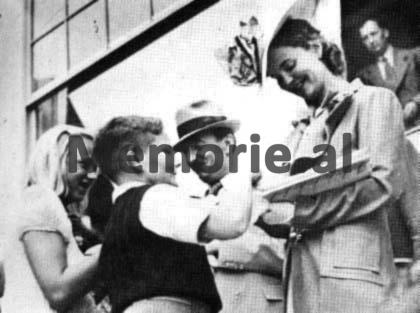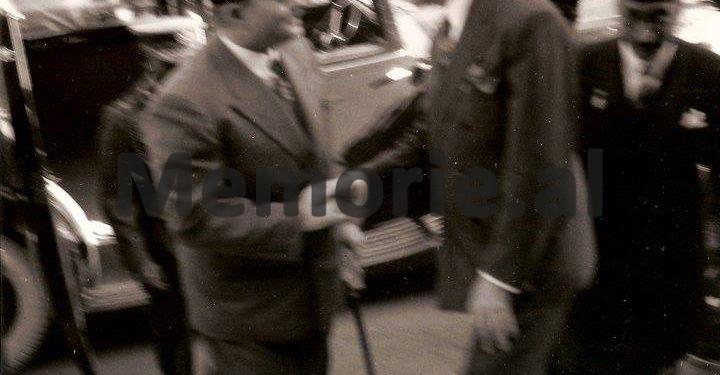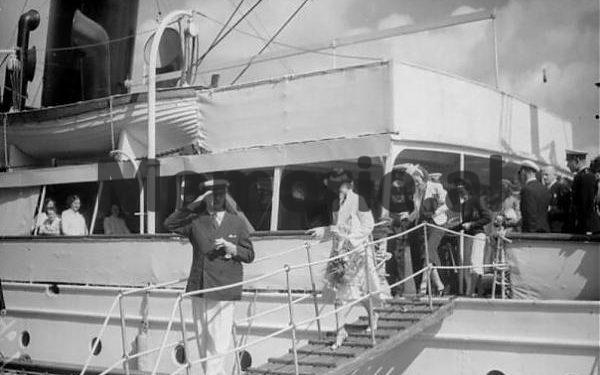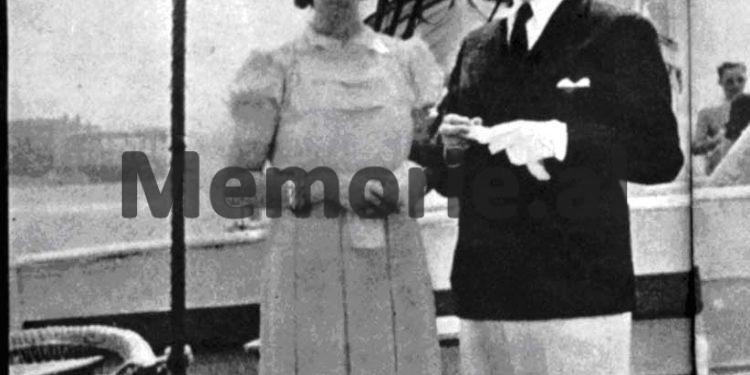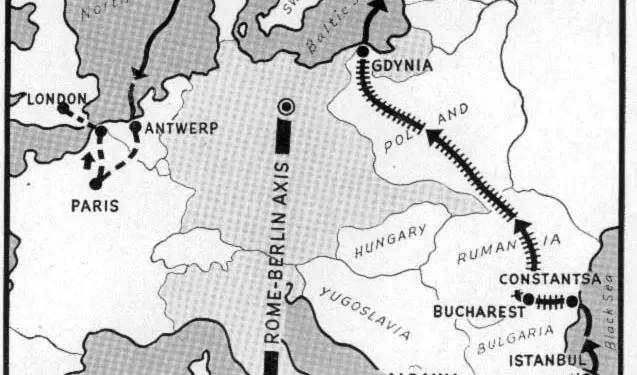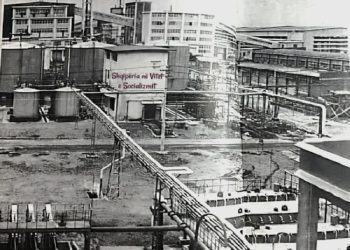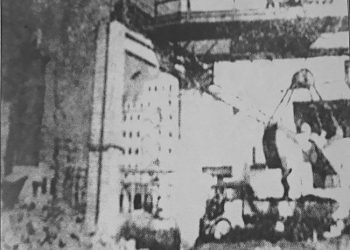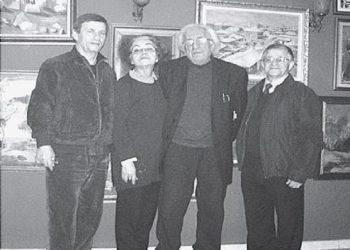Memorie.al/publishes the unknown story of the Albanian royal family in the memoirs of Queen Geraldina Apony, which were written by her during the years when she and her husband, King Zog, together with Prince Leka, stayed in political asylum in different countries of the world. The incident of King Leka with weapons in Thailand and his release from arrest after the intervention of the high authorities of that country ….
For more than 63 years that the Royal Family of Albania remained in exile as a political asylum, settling and moving through several different countries of Europe and Africa, it went through a real ordeal, facing various vicissitudes. Regarding these vicissitudes that have accompanied in the long adventure the family of King Zogu the first and his heir Leka, since before the 1990s, several books have been written by foreign authors, which are mostly based on the memories of Queen Geraldina Apony. Some of these memoirs are also the ones we are publishing in this article, which belong to that period of time when the Albanian royal family lived in Egypt, thanks to the generous help of King Farouk, who gave a generous help to his close friend from Albania. Also, in this article we are publishing the incident of King Leka Zogu in Thailand, where he was detained for several days by the police of that country for a problem of weapons, an event which is excerpted from the book “Geraldine of Albanians” by the author Gwen Robnys.
Geraldine: Why we left Egypt
Since we did not have much work to do in England, my husband felt that we needed to move closer to the center of events, so we moved to Egypt. Given that Egypt was a Muslim country, he thought he would have been able to arrange some kind of assistance from the Islamic powers for our cause. We landed in Port Said and were greeted by the governor and long lines of police. We were treated as distinguished visitors and the customs officers did not want to check the things, we had with us, even though we told them we wanted to declare everything we had. This event became the cause of great trouble later, when King Farouk was overthrown. I remember vividly the first days in Alexandria. One day I got a phone call from a distant place and when I started talking, I heard my sister’s voice. I had not heard it since 1949. She had spent the war in Hungary, under German and Russian occupation, and had just arrived in Cairo from Austria. We left for Cairo at once and when we met, we sat talking all day and all night, without interruption. At this time Leka became ill. He had a constant fever and turned into a skeleton with melted eyes, so different with happy eyes and red cheeks of a cheerful boy who had been the day before. A doctor finally made the right diagnosis, revealing an infection in his throat glands. We made needles, penicillin, which cost a lot at the time. The same needles saved my son.
Visit to Mrs. Faruk’s lady
One day, three black and red “Cadillac” cars, accompanied by motorcycles, came to accompany us to meet Queen Farisa, King Farouk’s wife. As in all Muslim homes, she lives in a harem in a part of the building where only women lived. The queen had three daughters, the eldest was only six months older than Leka. Queen Farisa was a very loving and hospitable person, cordial and I am sorry that time has not brought her that happiness. As time went on, the issue of Lekë’s education had to be resolved. We decided to go back to Alexandria because there was an English school there. Victoria College, which could be attended by my son. During his early years in Egypt, King Farouk was very loving and close to us. Once, at a late dinner, one of the King’s sisters became seriously ill and was in dire need of blood. Faruk immediately jumped into his car and brought the doctor with all the tools on the spot. On another occasion, when a cholera epidemic broke out, his personal doctor came and healed all the people who lived with us. After some time, a change in the attitude of the Egyptian people towards all foreigners was noticed. They started saying disliked words and sometimes held a rather harsh attitude. One day, my husband received a letter informing him that difficult times were coming and advising him to leave this country. At this time King Zog, was very ill with an ulcer, which was bleeding and we had to stay in place. Indeed, considering this warning in light of the events of 1951 and 1952, I must admit that it was appropriate and well-intentioned. King Farouk was also changing. It seemed clear how much he was coming and he was getting more and more away from his officers, who were getting colder and colder towards him over time. One evening when King Zog, in all his despair, sought to find him, police vehicles had blocked every entrance to our villa. We thought that this preparation was as a precaution for King Farouk’s visit to us and we waited until 03:00 in the morning to see him. But he never came. The roads were blocked, perhaps to stop his meeting with us, because that was Farooq’s last night on the throne of Egypt.
The King’s health is deteriorating
During the first months of Naguip’s rule we were left alone. Then unexpectedly we were informed that the Legation of Free Albania in Cairo would be closed. In this case they assured us, however, that we were welcome to stay and live in Egypt. In the first part of 1954, without warning, the police surrounded our villa and asked to enter to check not only the apartment, but also our persons. My husband responded by saying that we had been given the right of extraterritoriality (the right not to be affected by international law) and that they had no power to enter our house, which was technically called Albanian land. Officers said they would check for tax reasons because they said we owed the Egyptian government arrears of taxes. How could this work be done, we said, when we had not had any income to pay taxes? Officers responded by saying that this was due to the fact that when we were in Egypt, we had not paid customs duties on the goods we imported into the country in 1946. We tried to clarify the matter, claiming that the inspectors at the time did not want to check our belongings, but these officers were instructed not to accept any excuse. They took with them all my personal correspondence, written in English, French, Hungarian, Italian, Serbian and Albanian. Many months passed before the letters I received were delivered to me. During our stay in Egypt, many people made proposals to my husband, I think more to get money, than to do it with money. Now as part of the Egyptian authorities’ investigation into our financial affairs, all these different tabs were opened. For a full eighteen months the Naguib government forbade us to withdraw money from the gold we had deposited in an Egyptian bank. Then Naguibi, fell and Naser came to power. During this time King Zog suffered further heart attacks and appeared to be in mortal danger. When the government learned the truth about his health condition, they became more lenient with us and sent government doctors to visit him because, apparently, they did not want him to die in Egypt, for fear that such a thing would have political consequences. This mild attitude of theirs prompted us to seek permission to leave. Permission was given to us.
King without place of rule
In July 1955, we landed in southern France and settled on the Cannes pier, on the French Riviera. We chose this city because of the mild climate because the King felt very weak and in a cold climate it could get worse. For years I had wanted to write and now undertook a correspondence course with a school in London. To hide my person, I registered under the name Germanie Harding, which is my American mother’s name. These memories of my life are the first to be published. In the first months of 1961, at one point the King decided to go to Paris to meet with President De Gaulle and some of his old friends. This trip made him ill and he got so sick that I, who had treated him in the early stages, could not and decided to take him to the hospital. Within a few weeks King Zog breathed his last. But even though the King died, he lives: his son Leka took over all the responsibilities of his noble father. King Zog, my dear husband, was a very distinguished personality. He connected a group of divided tribes, into a United Kingdom, into a single state. He, more than anyone else, created modern Albania and gave it the most advanced Civil Code of Eastern Europe. He equipped his country with schools and hospitals. All he needed was time to take his country and his people far ahead and make them happy. This time, a fascist dictator and world war snatched it from his hands. Now an alien evil, behind and that, has stretched along our beloved land and covered it with its black membrane. Some people tell me that my son, King Leka the First, and I myself, along with our loyal circle, working to help Albanian refugees around the world, are fighting for a cause that can be called lost. Yes, I cannot see our life and future in this black light of pessimism. I believe and think that the future can be free and happy if we work for this future. It is the great desire of my heart, accompanied by my fervent prayers, to see one day free the blessed land, which has lost its freedom for so long. As the great Englishman Edmund Burke once said, “Evil thrives when good people do nothing and stand idly by.”
The vicissitudes of the heir to the throne from the passion for weapons
Leka Zogu incident with weapons in Thailand
In March 1977, King Leka had two important business meetings in Thailand and, keeping a promise, proposed that Queen Susanna accompany him. When he finished his work in Bangkok, he planned to take him to where the Thai people lived and from where they could see this generous people in their settlements. Queen Susanna was on her way to Australia and this became like a break in her journey. Before leaving London, King Leka had bought a collection of weapons to donate to his hosts. The King of Thailand and various ministers, heads of departments, as well as some of his friends in Saudi Arabia, whom he had planned to visit directly after Thailand, while Queen Susanna would visit her parents. The weapons were regularly purchased in London to be shipped to Thailand to be worked with gold to name anyone who would be donated. This was just an old Albanian custom that Leka was following. After staying two weeks in Bangkok for his affairs, King planned to make a trip to Northern Thailand to Chiang Mai and Chiang Rai provinces. This visit was both tourist and professional interest, because in those areas there were many well-attached military units and Leka wanted to see with his own eyes how these units were trained and whether they differed from European training methods. While there, he visited several border areas of interest and border patrol areas where he was provided with some working liaison equipment, which was much needed by “free Albanian” units. After several days of visits to the border posts accompanied by an official military escort, Leka returned to Bangkok accompanied by a police escort to avoid any surprises on the Chiang Mai-Bankok road. It was a common practice for police to escort a person with diplomatic immunity. When they arrived in Bangkok, King and Queen Susan lodged with their close friends, Colonel Vills H. Bird and his wife, who belonged to a prominent Thai tribe. Two days later, Mrs. Bird received a phone call from a police officer, whom she had every reason to believe, who told her: “Bad elements have a complete list of equipment that King Leka received in Chiang Mai. “They insist on bringing them back and avoiding the difficult situation that will arise by attacking your house, as he will leave any place he finds.” Wanting not to cause any trouble to his friends, King Leka handed over the equipment, except for the weapons he had bought in England for gifts. Although the equipment was delivered on time, police broke promises made over the phone and went to raid Colonel Bird’s home. King Leka, His Highness, Prince Shan and Captain Kemvong Mengrai were arrested. The whole police operation was carefully prepared, this was evident, as every Thai newspaper had not only sent its correspondents to the police post, where the King was staying, but also to watch and write about the house raid. At 6 a.m. on April 1, Queen Geraldine received a phone call from Bangkok from William Bird Jr., who informed her that her son had been arrested on a weapons charge. He told her that authorities had refused to grant him diplomatic immunity, even though he had a valid diplomatic visa from the Thai government. He asked her to contact the competent authorities in Madrid to clarify the situation. In such moments of crisis, Queen Geraldine showed surprising calmness and clear thinking. At 8:30, she went straight to the Zarzuela Palace, but was told she could not speak to either King Juan Carlos or Queen Sophia. Every Friday in Madrid a government meeting was held, chaired by the King himself, and on that day, it was difficult to get in touch with him. In the afternoon, Geraldine telephoned the Thai ambassador, who was unaware of the type of visa granted to King Leka, although the embassy should have received approval from Bangkok and seemed unaware of what had happened. Geraldine insisted that he send a telegram to his Government to clarify what was happening to her son. All that day, she made phone calls to her friends all over the world. She called Tehran to try to contact the Shah, but was told he and his family were in Kish. However, the Iranian ambassador in London was able to contact the Ministry of Foreign Affairs in Iran and receive a message from the Shah. English family friends, Colonel Charles Ingio Jones and Julian Amery who had just returned from vacation, had contacted him. Ingio Jones and Julian Amery had discussed together about the possibility of alerting those US senators who had indicated that they were good friends of Free Albania and Julian Amery promised Geraldine that he would talk to the Foreign Minister and get information about the situation. , as well as with the Thai ambassador who was his friend. In a state of despair, Geraldine called the Royal Palace in Madrid again, and King Juan Carlos and Queen Sofia assured him that they would do everything possible to secure the release of King Leka. After that in some countries of the world there were demonstrations by Albanian emigrants against what had happened to their King. But how was King Leka’s problem solved? As the incident caused a stir in the press, Thai state authorities were alerted and Deputy Chief of Staff Kraisnak Chamanan ordered their release, although this had to be done by the Supreme Court. King Leka and the Prince were released at midnight on April 5, which also corresponded to his birthday. After that event, King Leka continued to stay in Thailand as a guest of General Kraisnak, while the event was covered by a complete silence. It was clear that some powerful forces had worked to compromise King Leka and paralyze his military organization of “Free Albanians”. To this day it remains a mystery who was behind that blunder by the Thai government. A week before King Leka went to Thailand, there had been an attempted military coup there and on April 20, General Hiranyiasiri was executed for participating in it. It is very likely that the banning of King Leka was a final sign in discrediting the Thai government. Coup leaders must have known that the Thai royal family was on holiday at its residence in Chang Mai, the army commander outside Bangkok, and that parts of the police apparently were under the influence of anti-government elements. Announcing to the press about the banning of King Leka, they had thought they would discredit the government even more. Seeing that no one took over the arrest and members of the government hesitated and made no attempt to secure his release. At the time, Thailand was under strong pressure from communist guerrillas, and an ambassador from a foreign country stated: “When this happens to King Leka, who is in possession of a diplomatic visa, then how credible are our credentials as employee’s embassy? “. As soon as King Leka was released, the Thai government did everything possible to correct the mistake. Since he had been formally invited and had visited the country ten more times, he left on a Royal Jordan Airlines plane, taking with him the thanks of the Thai military authorities who had continued to secure his person, until the moment of leaving Thailand.
(Taken with abbreviations from the book “Geraldine of Albanians” by the author, Gwen Robyns) Prepared by Armin Tirana./Memorie.al




